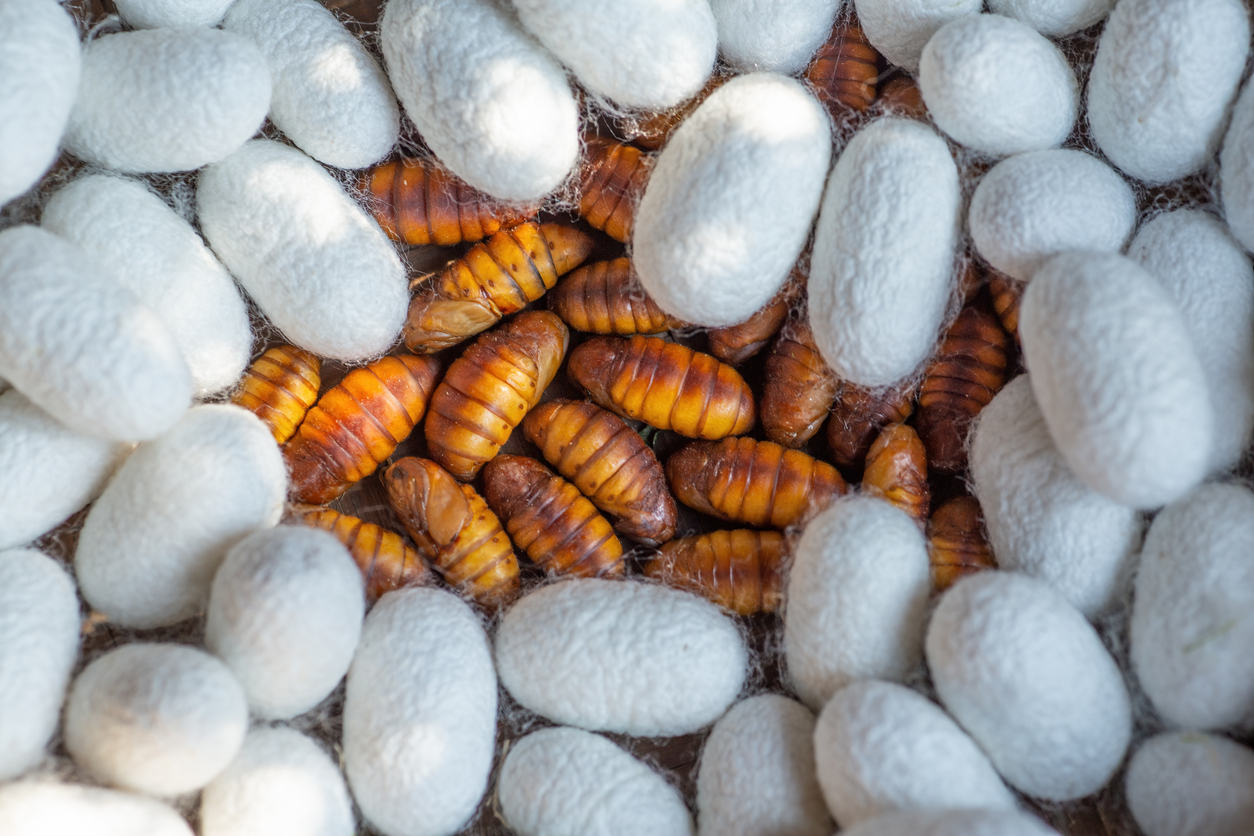
Silkworms Engineered for Super Silk
March 27, 2024| |
Experts have been trying to modify silkworm genes to create silk with new properties, like spider silk's strength. This goal is faced with numerous challenges, but researchers from Jiangsu University of Science and Technology in China and partners explored using various techniques for genetically engineering silkworms, such as TALENs and transposon-mediated transformation.
These methods involve adding genes for specific silk proteins: a spider silk protein and a bagworm silk protein. The results showed that the engineered silkworms produced more of these new silk proteins (up to 64%) than regular silk. The silk fibers were also much tougher, some by as much as 86%.
The researchers looked closer at the silk fibers and found a key reason for the increased toughness: a higher level of crystallinity. This means the silk fibers are more organized, like tiny crystals packed together. Additionally, the new genes contained special repeating sequences that helped with this organization. Further analysis revealed that such changes did not affect the other silkworm genes.
The findings of the study could lead to the development of custom-designed silks using genetically engineered silkworms as tiny silk factories.
Read more in PNAS Nexus.
| |
You might also like:
- CRISPR Silkworms Produce Better Silk Fibers
- Scientists Engineer Silkworms to Produce Glowing Silk Fabric
- Gene Editing Technique Used to Develop Spider Silk-producing Silkworm
Biotech Updates is a weekly newsletter of ISAAA, a not-for-profit organization. It is distributed for free to over 22,000 subscribers worldwide to inform them about the key developments in biosciences, especially in biotechnology. Your support will help us in our mission to feed the world with knowledge. You can help by donating as little as $10.
-
See more articles:
-
Plant
- Researchers Report Methods to Regulate Rice Chilling Tolerance
- Scientists Enhance Diurnal Flower-Opening Time of Rice
- Genetically Engineered Clover Undergoing Trials in Australia
- USDA-APHIS Determines that Yield10 Bioscience's Omega-3 Camelina Varieties May Be Planted and Bred in the US
- Study Models Future Effects of Climate Change on US Corn and Soybean Yields, Production, and Exports
-
Animal
- Silkworms Engineered for Super Silk
-
Food
- Gene Editing of Edible Fungus Produces Healthier Foods
-
Environment
- Machine Learning Model Predicts Effect of Climate Change to Rice Yields
-
Read the latest: - Biotech Updates (February 11, 2026)
- Gene Editing Supplement (January 28, 2026)
- Gene Drive Supplement (February 22, 2023)
-
Subscribe to BU: - Share
- Tweet

